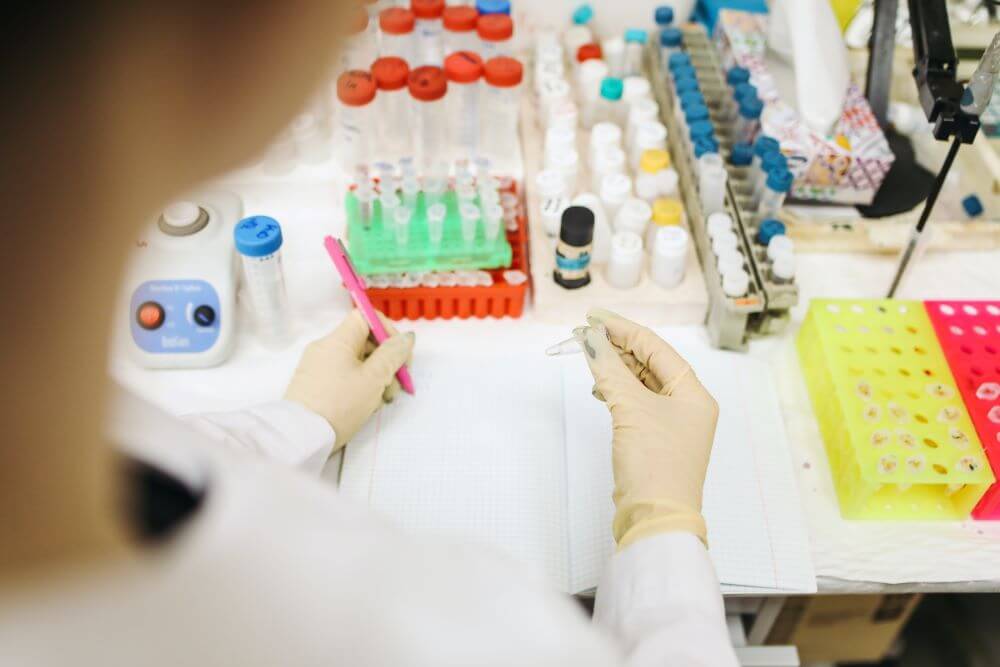Bladder cancer research benefits from clinical trials to advance research, drug development and treatments. Crucial research and findings come from clinical trials that aid not only in treating those with the disease, but also in progressing screening processes to make easier and earlier diagnosis.
According to Cancer Research, there are around 10,500 new bladder cancer cases each year and it is the 11th most common cancer in the UK. Simbec-Orion is a clinical research organisation (CRO) who specialise in end-to-end clinical trial management including patient recruitment and pharmacovigilance.
What is Bladder Cancer?
Bladder cancer can present itself in two places, either within the lining or the muscle. The most common type is within the lining (non-muscle invasive) and is usually when bladder cancer is within the early stages. Muscle invasive bladder cancer is where the cancer cells spread to the muscle and is a more progressive type of cancer that is more likely to spread to other parts of the body.
The treatment usually consists of surgery, chemotherapy, radiotherapy or bladder removal – depending on the type and advancement of the cancer. Preventative measures are usually then in place to minimise the risk of the cancer coming back.
Symptoms of Bladder Cancer
Symptoms of bladder cancer can range and you could experience one or more, including:
- Blood in urine (this will depend on the individual – it could be little or a lot and not be frequent enough to be noticeable)
- Urinating more frequently, getting a sudden urge to urinate often or a burning sensation when urinating
- Recurring urinary tract infections
- Weight loss without trying
- Pain in pelvic area
- Swelling in legs
Some of these symptoms are not always bladder cancer, so it is important to raise your concerns with your GP.
Who Does Bladder Cancer Affect?
This form of cancer affects males (7th most common cancer) more than females (17th most common cancer). Bladder cancer is often more common in older adults too, over the age of 60 with 49% of cases being preventable in the UK.
Bladder cancer is increased in risk in those who smoke or have worked in certain manufacturing industries because of increased industrial chemical exposure. All of the risks are still unknown and risk factors only increase the chances of developing the disease.
Bladder Cancer Awareness Day 2025
The annual month to raise awareness for bladder cancer is May, with the common goal to increase public awareness and fundraise to help progress research. You can share your story, spread educational resources or challenge yourself and raise money to support the cause. Yellow, purple and navy badges are also often worn to represent the cause.
The Importance of Clinical Trials for Bladder Cancer
Clinical trials are important in advancing the understanding, diagnosis, and treatment of the disease. These trials are essential for the development of screening processes, new therapies, improving existing treatments, and enhancing patient outcomes. They bridge the gap between laboratory research and clinical application, ensuring that innovative approaches are rigorously tested before becoming standard care.
Advancing Treatment Options
As mentioned, bladder cancer treatment traditionally includes surgery, chemotherapy, radiation therapy, and immunotherapy. Clinical trials explore strategies, such as targeted therapies and combination treatments, to improve outcomes of each stage. For example, immune checkpoint inhibitors, such as pembrolizumab and atezolizumab, have been developed and approved for advanced bladder cancer through clinical trials. These therapies harness the immune system to target cancer cells – which offers an alternative for those who don’t respond to typical treatments.
Personalised Drug Development
By identifying genetic and molecular markers, researchers can develop tailored treatments based on individual tumor profiles. Biomarker-driven trials, such as those investigating FGFR inhibitors for patients with specific genetic mutations, demonstrate the potential to improve outcomes by aligning therapies with patients’ unique disease characteristics.
Improving Early Detection and Prevention
Bladder cancer is often diagnosed at an early stage, but recurrence is common. Clinical trials are essential for testing new tools to diagnose the disease and advancing preventive measures. Research into urine-based biomarkers, imaging techniques, and non-invasive tests could lead to earlier detection and better monitoring of recurrence, significantly impacting patient survival and quality of life.
Addressing The Stages Of Bladder Cancer
Clinical trials are particularly important for patients diagnosed with rare subtypes of bladder cancer, advanced disease, or those unresponsive to existing treatments. Trials exploring novel agents (antibody-drugs or gene therapies) provide opportunities for patients to trial new treatments that are not available yet. It can provide hope and treatment for those who have exhausted their options with the disease.
Simbec Services To Help Bladder Cancer Treatment
Here at Simbec-Orion, our global services cover the full clinical trial management process, covering all phase 1, phase 2 and phase 3 stages. Our teams hold almost 50 years of experience, with specialists in each part of the process to become an extension of your team. See the full CRO services list and get in touch via the contact form.





